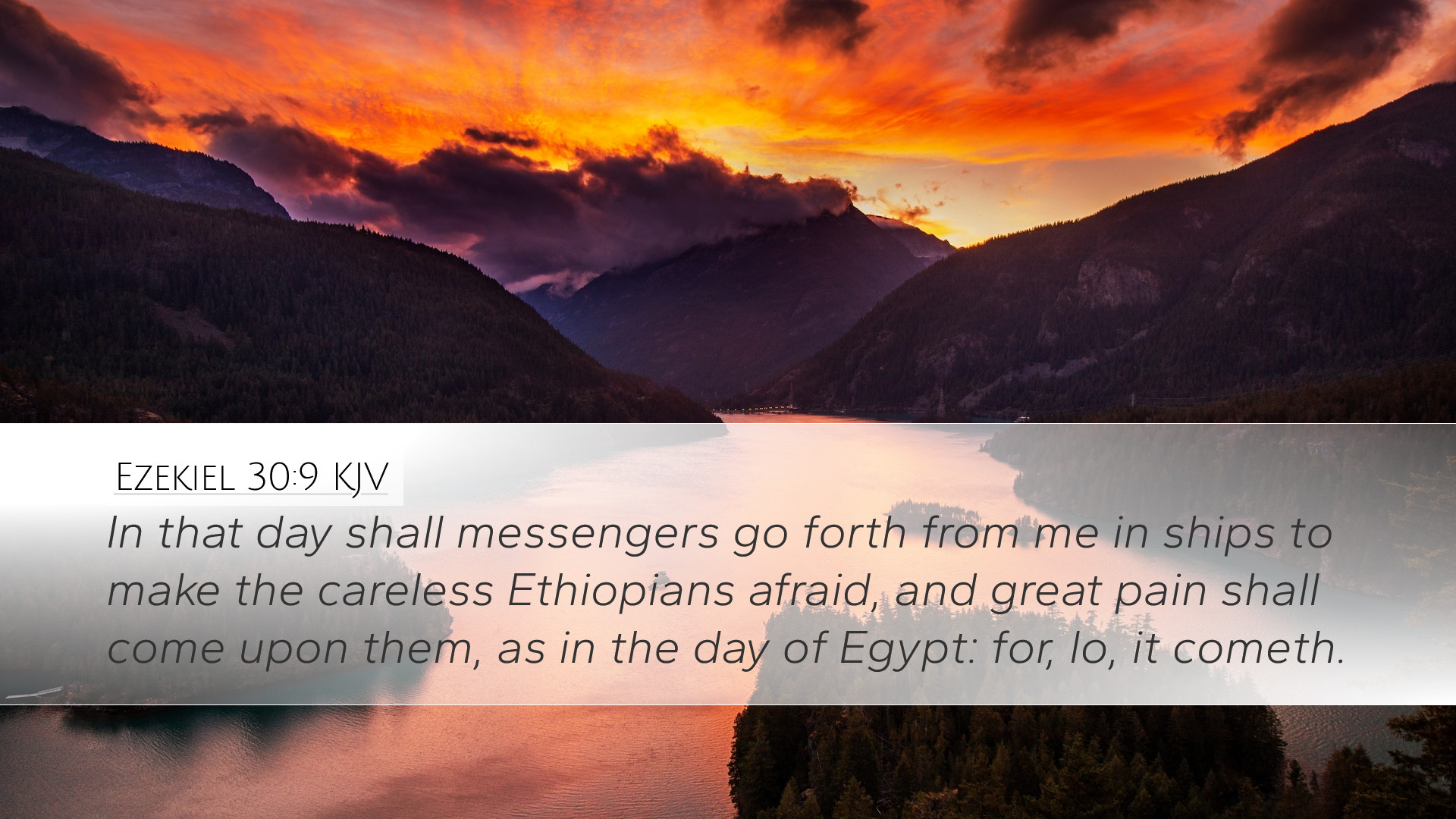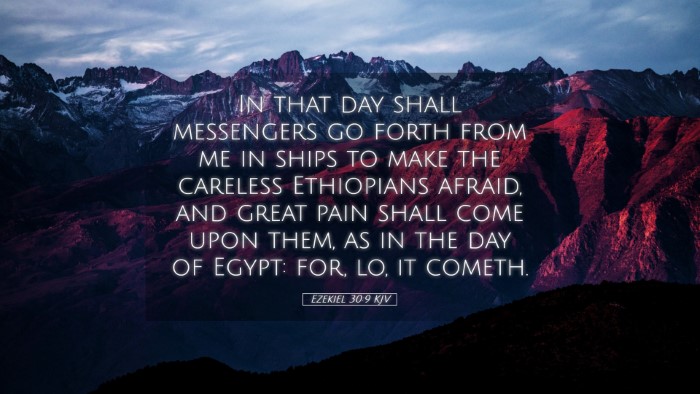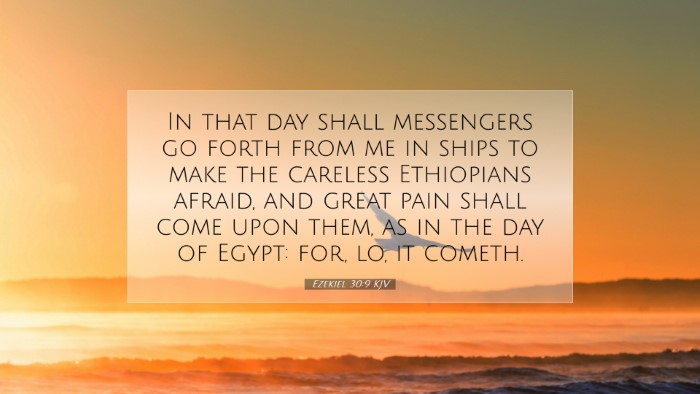Ezekiel 30:9 Commentary
Verse: "In that day shall messengers go forth from me in ships to make the careless Ethiopians afraid, and great pain shall come upon them, as in the day of Egypt: for, lo, it cometh." (Ezekiel 30:9)
Introduction
The verse Ezekiel 30:9 serves as a pivotal point in the prophetic oracles concerning Egypt and Ethiopia. Ezekiel, a major prophet during Israel’s Babylonian captivity, delivers a message that not only addresses the immediate political realities of his time but also speaks to the broader themes of divine judgment and the sovereignty of God over nations.
Theological Context
This prophecy emerges during a period marked by significant turmoil and international conflict. The surrounding nations, particularly Egypt and Ethiopia (Cush), found themselves at the center of geopolitical struggles. Ezekiel's imagery of messengers sent in ships signifies both rapid communication and the urgency of God's message regarding impending judgment.
Insights from Commentators
Matthew Henry: Henry remarks on the ominous nature of the prophecy, emphasizing the fear that will seize those who are "careless." He notes that the "messengers" symbolize God's active engagement with the nations and the warning of approaching doom. Henry views the "fear" of the Ethiopians as a divine instrument to bring about recognition of their impending judgment.
Albert Barnes: Barnes elaborates on the identity of the "messengers" as possibly representing either human emissaries or divine forces. He connects the term "ships" to the means of transportation in the time, underscoring the spread of God’s warning across regions. Barnes also makes a historical connection to Egypt as a power that once enslaved Israel, reiterating that the same nation will face judgment.
Adam Clarke: Clarke provides a detailed analysis of the "great pain" mentioned in the verse. He highlights the consequences of divine wrath and the fear that will sweep through the Ethiopians, likening their distress to that experienced during the days of Egypt's plagues. Clarke draws attention to the metaphorical language prevalent in Ezekiel, which illustrates God’s control over the fate of nations and the distinct response He demands from them.
Exegesis of Key Terms
- Messengers: The use of “messengers” signifies the role of communication in the divine plan. This often invokes the imagery of angelic beings or prophetic voices carrying God’s decrees.
- Careless Ethiopians: The term "careless" indicates a state of spiritual apathy among the Ethiopians, illustrating their lack of vigilance regarding God’s sovereignty. This neglect is met with a stark warning of consequences.
- Great Pain: This phrase refers to the intense suffering and turmoil that will engulf the nation, akin to the experience of the Egyptians during their own judgments.
- Day of Egypt: This allusion serves as a historical reminder to the peoples of the surrounding nations regarding the unprecedented judgments that had come upon the Egyptians, showcasing God's power and capability to enact similar fates on others.
Theological Implications
Theological reflections from this passage underscore themes of repentance, divine wrath, and divine sovereignty. The passage implies that nations, like individuals, are accountable to God and must respond to His calls for righteousness. The imagery of sea-faring messengers also speaks to the universality of God’s message, transcending geographical boundaries in its reach.
Historical Application
From a historical perspective, the warnings directed toward Ethiopia serve to remind leaders and nations of their place before God. Henry suggests that such prophecies compel nations to examine their alliances and moral standings. The humanitarian implications of such judgments call into question how modern leaders balance power, ethics, and divine accountability.
Conclusion
Ezekiel 30:9 encapsulates profound truths about divine judgment, prophetic warning, and the necessary posture of nations before God. For pastors, students, theologians, and scholars, this verse serves as a compelling reminder of God’s sovereignty over history and the call to remain vigilant against complacency in one’s spiritual journey. As we mediate on this verse, let it challenge both our individual and collective commitments to discernment and faithfulness in our service to the Lord.


